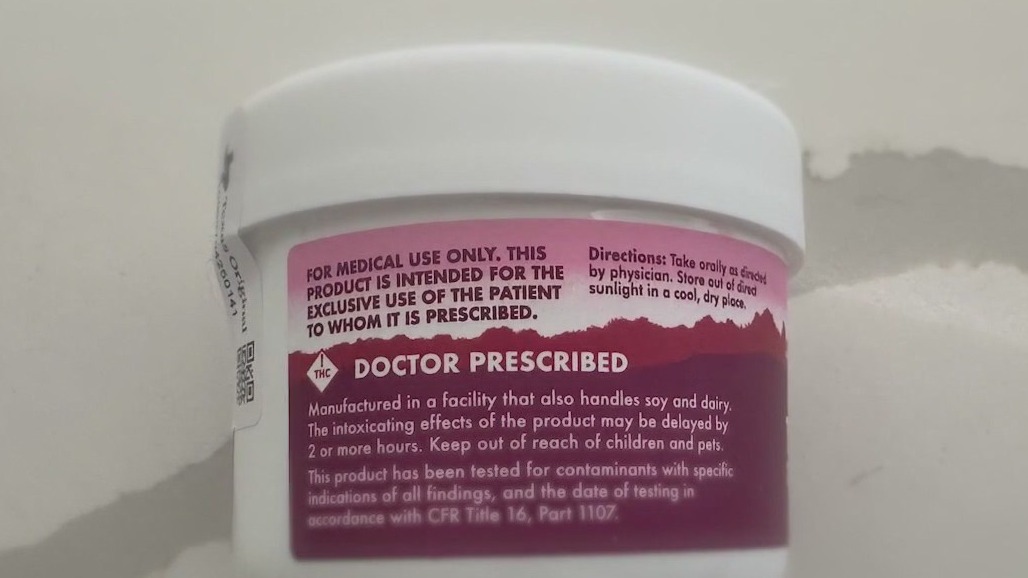Veteran says legal THC prescription cost him custody rights

Texas veteran says legal THC prescription costed him custody right
A combat veteran claims he lost overnight stays with his daughter due to his THC prescription. FOX 26's Abigail Dye spoke to the veteran and looked into his legal case.
HOUSTON - A Texas combat veteran says his legally prescribed medical THC is affecting his parental rights, costing him overnight visits with his young daughter.
Army veteran seeks help through THC
What we know:
Robert, an Army veteran, says he was diagnosed with post-traumatic stress disorder after his tour in Afghanistan.
"I deployed for a year in 2010, and I saw combat," Robert said. "When I came home, I brought that stress with me, kind of always looking over my shoulder, not feeling safe in any space."
In 2021, he says he began taking low-dose THC under the Compassionate Use Program authorized by the CURT Act. That law allows doctors to prescribe medical cannabis for certain conditions, including PTSD.
He credits his THC prescription and therapy with changing his life, giving him the tools to live in normalcy and thrive.
"When I came back, I was self-medicating. With the prescription, I no longer have to do that," he said.
But now, Robert says the same medication that helps manage his symptoms is being used against him in family court.
The custody issues
What they're saying:
"Over the course of the last three to four years, I had my daughter on a weekly basis," he said. "There was a December 9, 2024, order where I was granted overnight visits."
That changed, he says, after he tested positive for THC. He says he provided the court with documentation of his legal prescription — but a temporary restraining order was filed and granted, revoking his overnight privileges.
A copy of the court's bench order, reviewed by our newsroom, states the ruling was due to "the revelation of [Robert’s] prescription" and the perception that it could present a potential danger to the child.
A transcript of a deposition with Robert's doctor shows his doctor explaining the use of THC was for Robert's sleep, saying it is to prevent "PTSD and nightmares."
The record shows the doctor was asked: "If Robert was the only adult in the house with a young child, and he's taking his dosage as prescribed, does that cause you any concern?"
The document shows the doctor answering as follows: "It doesn't cause me concern, no."
Robert says he feels tasked with choosing between time with his daughter and the medication that allows him to be a good dad.
"I don’t believe this is going to help my situation, but the knowledge and understanding might help someone else, and it may sway some hearts and minds around the stigma about this medication."
FOX 26 reached out to Montgomery County Judge Tracy Gilbert, who issued the decision, to ask if other factors played a role in the decision and to confirm whether THC was the determining factor. He has yet to respond.
The CURT act and HB46
Dig deeper:
The Compassionate Use Registry of Texas (CURT) Act, passed in 2015, allows physicians to prescribe low-THC cannabis to patients with specific medical conditions, including PTSD, epilepsy, cancer, and more.
On June 20, Governor Greg Abbott signed House Bill 46, expanding the CURT program, strengthening patient protections, and requiring state agencies to better educate courts, law enforcement, and employers about the legality of medical THC prescriptions.
The bill adds several new qualifying conditions for low-THC cannabis prescriptions, including chronic pain, traumatic brain injury, and Crohn’s disease.
HB 46 also allows new delivery methods such as vaporized products, patches, topicals and suppositories, so long as they are prescribed by a licensed physician, according to the bill text.
The Source: Interview with Robert, court documents reviewed by FOX26, Compassionate Use Program (CURT) Act, HB 46 legislative summary

